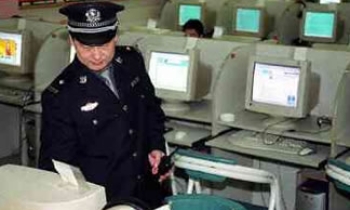WASHINGTON - The only thing my wife loves more than picking through someone else’s junk at a garage sale is selling her junk at her own garage sale.
Unfortunately, her idea of holding a garage sale consists primarily of me dragging her junk — often items she purchased in someone else’s garage — into our driveway. Invariably, this ends with her standing guard all day, pocketing $42.25 and me dragging most of that junk back into the garage.
This year, not wanting to go through yet another futile attempt to market baby strollers, old skis and worn-out furniture, I decided to try Craigslist. For the uninitiated, Craigslist.org is a free online classified service that has become the bane of newspapers, as they have watched tens of millions of dollars in advertising revenue evaporate. You can sell or buy pretty much anything, as well as find a job, an apartment or a date.
I took a few digital photos, wrote some hokey descriptions and within a day had buyers for every item. I even pocketed a fair amount of cash in the process.
My success in converting my wife’s trash into cash came to mind recently during a conference on ethics in online journalism at the Poynter Institute, a sort of think tank/ journalism school founded by Nelson Poynter, the former owner and editor of The St. Petersburg Times. The assembled group included Poynter faculty, journalists from online news sites from newspapers and television networks and one blogger — me.
As the journalistic outsider in the group, I had the advantage of not having to be concerned with newspaper traditions or the economic, legal and branding realities that confront my fellow participants. We spent the better part of three days considering the various ethical dilemmas inherent in online journalism and the impact on blogging, citizen journalism and “user-created content” on standards and ethics in newsrooms.
Our mission was not to solve the ethical problems surfaced during the conference but to develop protocols — a set of questions journalists ought to ask — as they consider a new media landscape where bloggers, citizen journalists and search engines like Google are driving access to news and information, and where journalistic standards are either watered-down or non-existent; a landscape where readers are, in effect, collaborating on the creation and distribution of news product. The result was a thoughtful, soon-to-be-published document.
Yet, it was often a struggle to move the discussion beyond generic ethical issues such as accuracy and fairness and focus on those unique to online news — linking to third-parties, anonymous and pseudonymous blogs and comments and in-house blogs where “objective” journalists are often encouraged to express opinion.
Given the many deep-seated traditions in journalism, it is no surprise that many journalists are hidebound when grappling with the future of journalism and the role of traditional news organizations in the emerging media landscape. It might be interesting to debate whether a newspaper ought to link to a blog, which has published cartoons mocking Mohammed or raw exit poll data, but readers are voting with their mouse.
If CNN.com or latimes.com will not link the Nick Berg beheading video, there are plenty of alternatives that will. Like it or not, a forward-thinking set of ethical standards for news organizations is going to need to account for this new reality where readers are setting their own standards, gathering their own information and demanding a say in what constitutes “news.”
To appreciate the danger for traditional news outlets, one only needs to look at the way Craigslist wreaked havoc on revenue from newspaper classified ads, money which played a large role in subsidizing news gathering operations. It is hard to believe that if newspapers knew then what they know now, they would have continued to insist on charging for classifieds or applying the same standards in restricting the content of those ads. Having done so they were effectively driven out of the classified ad business.
In a horizontal media environment, the credibility of a news brand means more, not less. There is no doubt that traditional news organizations still have a vital role to play, but acting as gatekeeper and guardian of community values is not likely to be one of them.
Traditional news organizations need to question the value of maintaining high-minded standards that are driven primarily by fear of puritanical reader complaints. What good is attempting to impose such standards on what you disclose to your readership if, in doing so, you wind up with no readers at all?
Robert Cox is a member of The Examiner’s Blog Board of Contributors and, as president of the Media Bloggers Association, blogs at wordinedgewise.net.









